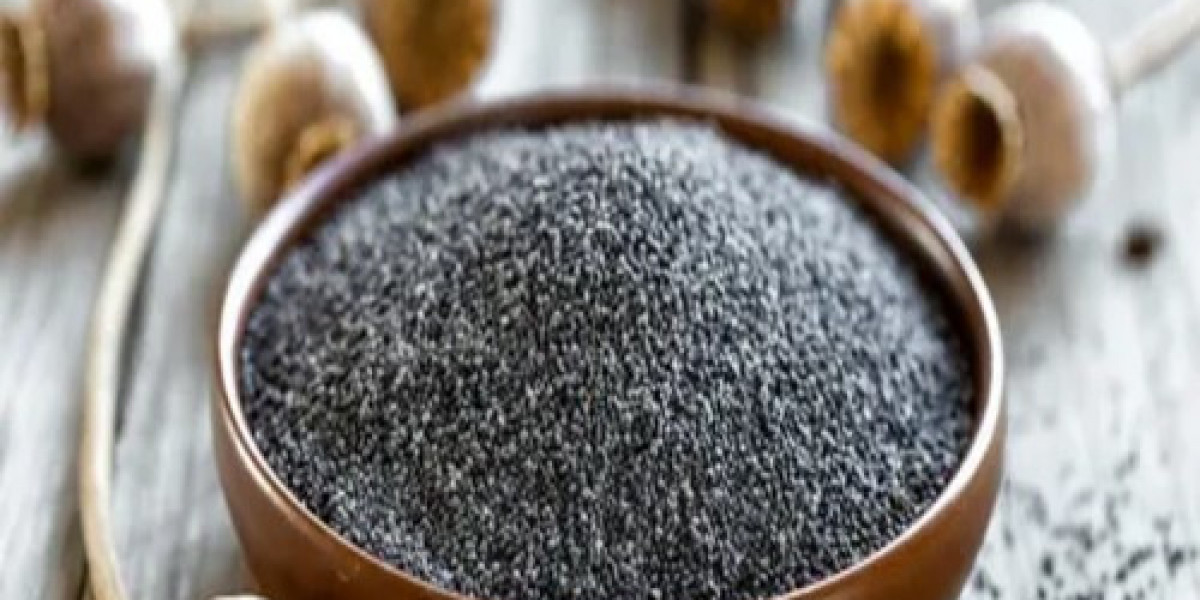What are Poppy Seeds?
Poppy seeds are the tiny edible seeds of the opium poppy. They have been used since ancient times for both culinary and medicinal purposes. Despite their origin, poppy seeds themselves do not contain any detectable levels of opium or its derivatives like morphine or codeine. Poppy seeds range in color from blueish white to black and have a mild, nutty flavor and subtle crisp texture when used in cooking.
Nutritional Profile of Poppy Seeds
Poppy Seeds are a nutritious addition to any diet. Just one tablespoon of poppy seeds contains about 51 calories and is naturally low in fat, sodium and cholesterol. Poppy seeds are a good source of fiber, manganese, iron and copper. They also contain protein, B vitamins like niacin, thiamin and folate, and other minerals like magnesium, phosphorus and calcium. The oil content in poppy seeds gives them heart-healthy fats like monounsaturated and polyunsaturated fatty acids.
Uses and Culinary Applications of Poppy Seeds
Poppy seeds have traditionally been used in many cuisines, especially in European countries. Some common culinary uses of poppy seeds include:
- Topping breads - Poppy seeds are often used as a topping on breads, bagels and rolls to add flavor, crunch and visual appeal.
- Fillings and baked goods - Finely ground poppy seeds are used in fillings for pastries and cakes or mixed into batter and dough for breads, cookies and more.
- Wet dishes - Whole or crushed poppy seeds can be added to creamy soups, stews, casseroles and other wet dishes for flavor.
- Seasoning meat and poultry - Poppy seeds are sometimes used to season and coat meats before cooking, such as chicken or pork cutlets.
- Salad toppings - Whole or crushed poppy seeds add texture and nutty flavor when sprinkled onto salads or potato salads.
- Seasoning vegetables - Poppy seeds enhance dishes like cabbage rolls, creamed spinach or simply steamed green beans.
History and Origins of Poppy Seed Usage
Cultivation of the opium poppy for its seeds dates back over 5,000 years to ancient Sumer in Mesopotamia. Poppy seeds have been discovered in archaeological sites from this era and were an important oil seed crop. The ancient Greeks and Romans then cultivated poppies and cherished poppy seeds for culinary uses as well as herbal remedies. During the Middle Ages, poppy seed pastry fillings and breads became popular treats across Europe. Immigrants and refugees spread poppy seed cuisine from Eastern Europe to North America in the 19th and 20th centuries. Today major commercial producers of poppy seeds include Europe, Canada, India and Australia.
Potential Health Benefits of Poppy Seeds
While more research is still needed, poppy seeds have been studied for various potential health benefits:
- Heart health - The balance of unsaturated fats in poppy seeds may help lower cholesterol levels and reduce risk of heart disease and stroke when consumed as part of an overall healthy diet.
- Pain relief - Poppy seed extracts have been used traditionally as herbal remedies for mild pains due to alkaloid compounds, though poppy seeds themselves have no analgesic properties.
- Anti-inflammatory - Compounds in poppy seeds called phenolic acids may help reduce inflammation in the body according to some animal and test tube studies.
- Antioxidant support - Antioxidants in poppy seeds like vitamin E could help protect cells from free radical damage and combat oxidative stress on the body.
- Digestive health - The fiber content in poppy seeds aids digestion and regular bowel function. Fiber also helps feel full longer.
- Bone health - Nutrients like manganese, copper and magnesium in poppy seeds support skeletal bone health and strength.
So in moderation, adding poppy seeds to your diet could offer various nutritional benefits. But much more research is still needed on their health effects.
Potential Risks and Side Effects of Poppy Seeds
Despite the numerous culinary and medicinal uses of poppy seeds, there are some potential risks factors to be aware of:
- Opiate detection - Poppy seeds have been shown to potentially cause positive results on drug tests looking for opiates like morphine and codeine, even though poppy seeds themselves do not contain any opiates. This is due to tiny invisible alkaloid residues binding to the seeds.
- Allergic reactions - As with any food, some people are allergic or sensitive to poppy seeds and risk an adverse reaction like hives, rash or digestive upset after consumption.
- Oxalate content - Poppy seeds are relatively high in oxalate and should be consumed in moderation by individuals prone to kidney stones.
- Laxative effects - Consuming very large amounts of poppy seeds at once may result in mild laxative effects for some individuals due to their fiber content.
So those with allergies, health issues or taking regular opiate drug tests are advised to check with their doctor before adding poppy seeds to their diets.
Get This Report in Japanese Language: ケシの実
Get This Report in Korean Language: 양귀비 씨앗
Explore More Related Article On- Halal Food Market
About Author:
Money Singh is a seasoned content writer with over four years of experience in the market research sector. Her expertise spans various industries, including food and beverages, biotechnology, chemical and materials, defense and aerospace, consumer goods, etc. (https://www.linkedin.com/in/money-singh-590844163)










